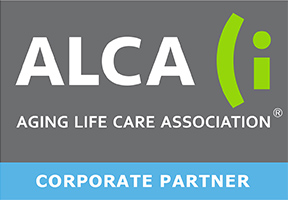At a Glance:
Consistency matters: Daily routines reduce stress and strengthen habits that protect memory and thinking.
Science-backed: Structured routines with exercise, nutrition, and sleep can slow cognitive aging.
Balance is key: Combine predictable rhythms with new activities to keep the brain adaptable.
When we think of keeping the brain healthy, we often picture crossword puzzles, memory games, or new learning challenges. While these activities certainly play a role, one of the most powerful tools for supporting cognitive health is surprisingly simple: routine. Establishing a steady rhythm to daily life provides structure, reduces stress, and reinforces habits that protect the brain over time.
Why Routine Matters
For older adults in particular, routine offers predictability in a world that can sometimes feel overwhelming. Having consistent mealtimes, sleep patterns, and activity schedules reduces anxiety and mental fatigue, freeing up mental energy for memory, problem-solving, and social engagement. A stable routine also strengthens circadian rhythms, which are closely tied to brain health and sleep quality. 1
Routine doesn’t just ease the mind; it builds lasting habits. When healthy actions like walking after breakfast or reading before bed become second nature, they’re more likely to stick long term. Over weeks and months, these small patterns compound into powerful thinking and memory support.
Evidence From Research
Recent studies highlight just how impactful structured daily routines can be. A 2024 clinical trial published in JAMA Internal Medicine followed more than 2,100 older adults at risk for dementia. Participants who engaged in a structured lifestyle program that included diet improvements, exercise, cognitive training, and regular check-ins showed measurable improvements in memory and processing speed, equivalent to delaying cognitive aging by one to two years. 2
Other research consistently links exercise, sleep hygiene, and nutrition, often best maintained through routine, to a reduced risk of cognitive decline and dementia. 3,4
The Risks of Irregular Routines
While structured routines support brain health, the opposite is also true: irregular schedules can be harmful. Inconsistent sleep and activity patterns have been linked to higher levels of stress, poorer mood, and weaker memory performance. Older adults with disrupted daily activity patterns have been shown to perform worse on cognitive tests compared to peers with consistent routines. Without a framework to anchor the day, the brain spends more energy adapting to unpredictability, leaving less capacity for focus, recall, and learning. 5
Building Cognitive Health into Daily Life
The key is to strike a balance: enough structure to create stability, but with room for originality to keep the brain adaptable. Here are some of the most effective elements to weave into a daily routine:
- Movement: Regular aerobic activity like walking, swimming, or dancing enhances blood flow to the brain and promotes the growth of new neural connections.
- Nutrition: Patterns like the MIND diet, which emphasizes leafy greens, berries, nuts, and fish, are linked to slower rates of cognitive decline.
- Sleep: Consistent bedtimes and calming evening rituals improve both sleep quality and memory consolidation.
- Stress management: Predictable rhythms reduce mental strain, while mindfulness or relaxation practices help protect against chronic stress that harms cognition.
- Unfamiliarity: Routines should leave room for enrichment. Learning a new skill, changing up a walking route, or trying a creative activity keeps the brain flexible.
Sample Daily Blueprint
- Morning: Wake up at the same time each day; do light exercise or stretching to reinforce circadian rhythms and energize brain function.
- Midday: Eat a balanced lunch with vegetables, whole grains, and lean protein to provide steady energy and nutrients for memory and focus.
- Afternoon: Engage in a hobby, puzzle, or social activity to combine routine with mental stimulation and connection.
- Evening: Follow a calming wind-down routine with reading, music, or relaxation before a consistent bedtime to improve sleep quality and memory consolidation.
Finding the Right Balance
It’s worth remembering that routine doesn’t have to mean rigidity. While consistency provides stability, too much repetition can feel limiting. The most effective routines anchor the day with familiar patterns but leave space for creativity and new experiences. Whether that’s joining a book club, cooking a new recipe, or exploring a different walking trail, unfamiliarity ensures the brain continues to adapt and grow.
Conclusion
A healthy daily rhythm is more than just a comfort; it’s a proven strategy for protecting the brain. By embedding exercise, good nutrition, sleep, and moments of learning or connection into a consistent routine, we create a supportive environment where cognitive health can flourish. For those looking to preserve memory, sharpen thinking, and age with resilience, routine may be one of the simplest and most powerful tools available.
References
[1] “Health Benefits of Having a Routine.” Northwestern Medicine, www.nm.org/healthbeat/healthy-tips/health-benefits-of-having-a-routine. Accessed 22 Aug. 2025.
[2] Yaffe K, Vittinghoff E, Dublin S, et al. Effect of Personalized Risk-Reduction Strategies on Cognition and Dementia Risk Profile Among Older Adults: The SMARRT Randomized Clinical Trial. JAMA Intern Med. 2024;184(1):54–62. doi:10.1001/jamainternmed.2023.6279
[3] “Exercise Can Boost Your Memory and Thinking Skills.” Harvard Health, 26 Aug. 2024, www.health.harvard.edu/mind-and-mood/exercise-can-boost-your-memory-and-thinking-skills.
[4] “Physical Activity Boosts Brain Health.” Centers for Disease Control and Prevention, Centers for Disease Control and Prevention, www.cdc.gov/physical-activity/features/boost-brain-health.html. Accessed 22 Aug. 2025.
[5] “Older Adults with Regular Routines Do Better on Cognitive Tests.” UPMC, www.upmc.com/media/news/091322-cognitivetests. Accessed 22 Aug. 2025.
The information provided in the article is for general informational purposes only. This information is not a substitute for medical advice. Accordingly, before taking any actions based upon such information, you are encouraged to consult with the appropriate professionals.






